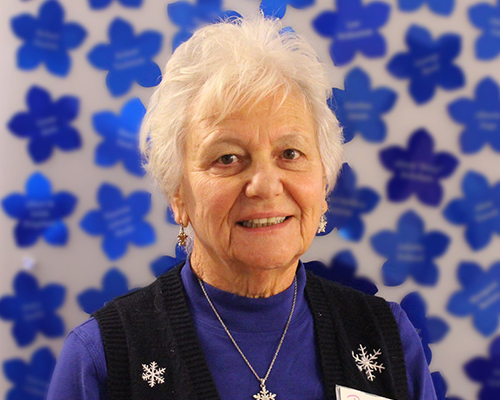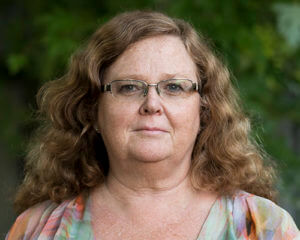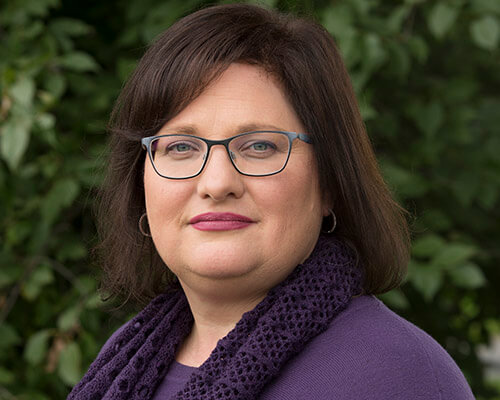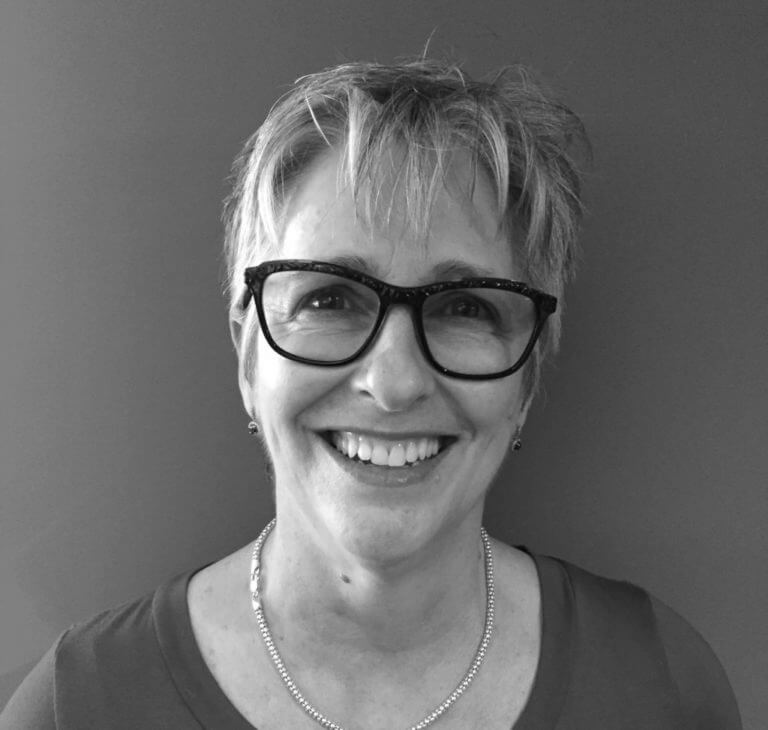Pauline
Our journey began in June of 2012. When my husband Ray was diagnosed with dementia, the news was devastating for both of us. But thanks to the Alzheimer Society’s learning series and support groups, I was able to get informed about dementia. I truly believe that knowledge is power.
When we received the diagnosis, we were very open about Ray’s diagnosis. The Alzheimer Society supplied us with cards I could hand out to people informing them of his illness–without embarrassing Ray or having to explain some of the changes in his behaviour that often occur in people with dementia. The cards were a big help in making people understand how to interact and communicate with Ray.
Ray also wore a blue umbrella pin and would share his diagnosis with as many people as possible to create more awareness in the community. When people know, they are much more understanding. When someone has dementia, they lose their filter and can sometimes be disruptive and rude. But it’s not the person’s fault, it’s the effects of the disease.
Unfortunately, there is still much stigma associated with dementia and it is our job to educate people that the disease does not choose who it afflicts and there is still no known cure.
Now that our journey has ended, I am thankful I was able to make Ray’s life as good as possible because of the help and support through the Alzheimer Society and thanks to understanding friends and relatives.
Media

HERE ARE MY TIPS TO HELP YOU UNDERSTAND:
- In the beginning stages, introduce yourself to the person and don’t use close-ended questions that require a ‘yes’ or ‘no.’ For my husband, this would put him on the spot and amplify his inability to understand and process information.
- Be patient. It’s not the person’s fault that they may have trouble understanding you. Speak slowly and keep away from crowds and noisy situations that could be distracting for the person.
- Continue to go out and visit friends as socializing is very important. It’s also extremely beneficial for the caregiver. Getting respite is a godsend because it gives you the patience you need to continue through the long days. Respite is not an easy task, but if you’re a caregiver, you must persevere as it’s necessary to have ME time.
- It’s difficult for others to understand what is happening and few people know how to come to your aid. But try not to judge them. Negative thoughts are very detrimental. We all cope and handle situations differently.
- Connecting with others in the same boat is important. By participating in the Society’s monthly support groups, we learned so much from others’ experiences. We laugh, we cry and always come away feeling de-stressed. These people you meet become much-needed new friends.
-
More Stories
-

Jane
2019
Ontario
-

Keith
2019
Ontario
-

Robin
2019
Ontario
-

Shelley
2018
Ontario

Comments
We may use your information in order to track your relationship with us and our site(s). We do NOT share your information with third parties.